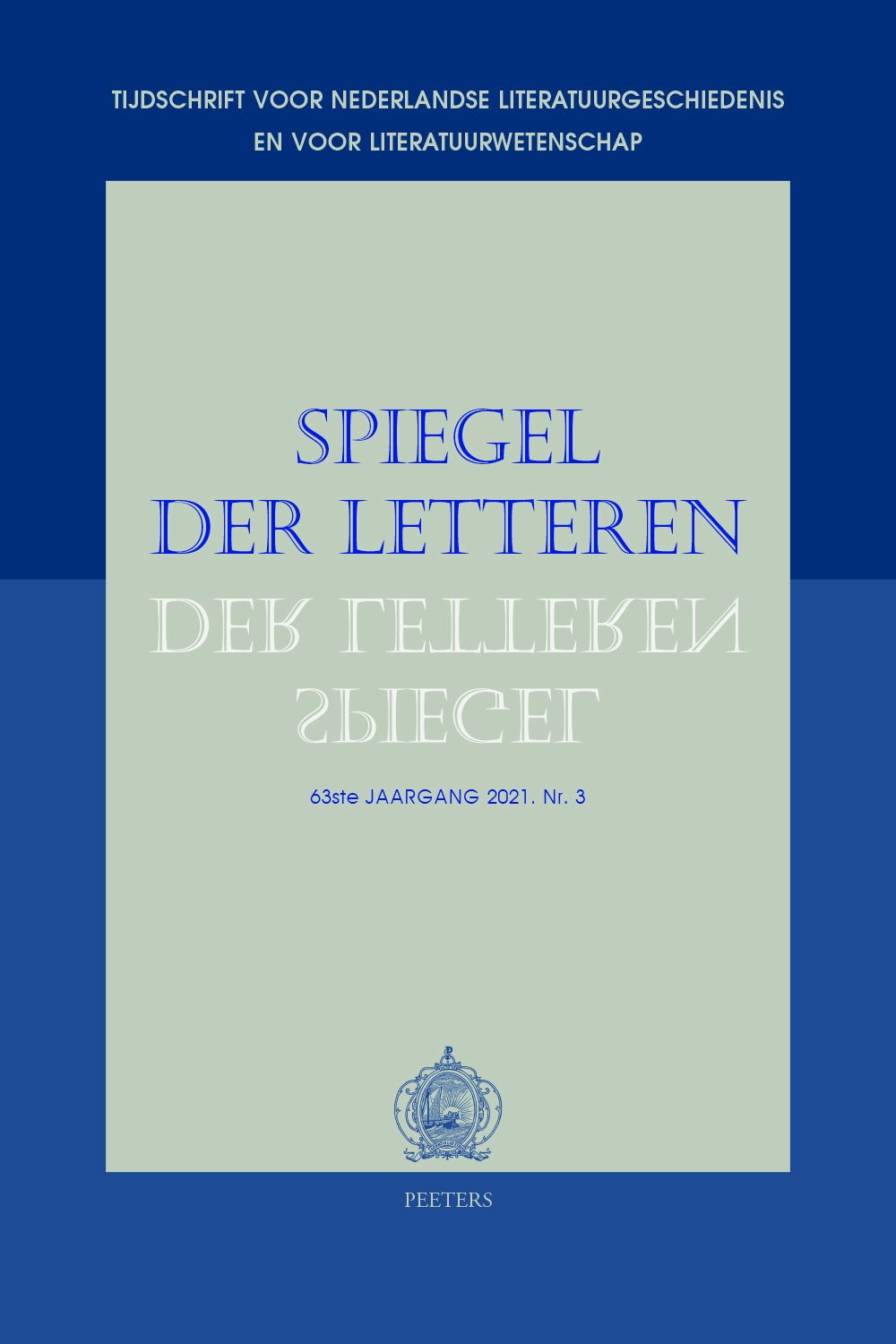next article in this issue  |

Preview first page |
Document Details : Title: Publiek, ik veracht u ... enigszins Subtitle: Discursieve autonomie in Nederland rond 1800 Author(s): HAM, Laurens , NIEUWENHUIS, Ivo Journal: Spiegel der Letteren Volume: 55 Issue: 1 Date: 2013 Pages: 1-33 DOI: 10.2143/SDL.55.1.2152720 Abstract : Recent literary scholarship usually distinguishes between two types of autonomy. Institutional autonomy concerns the creation of a professional and independent literary field, whereas poetical autonomy points to ideas about the self-legitimizing power of literary artworks. In the Netherlands both forms of autonomy supposedly arose almost simultaneously at the end of the nineteenth century. This article introduces a third form of autonomy: discursive autonomy, an author’s way of speaking and writing that shows how he places himself in a(n) (semi-)independent position. This form of autonomy already manifests itself in the early nineteenth century among marginal authors, especially hack writers. In this article, two of those authors are discussed: Pieter van Woensel (1747-1808) and Jean Baptiste Didier Wibmer (1792-1836). In particular, two tensions are analysed that can be found within their oeuvres, and that are both connected to the issue of discursive autonomy: the author as both dependent and independent of the audience and as both sincere and insincere towards that audience. |
|


